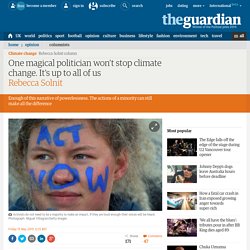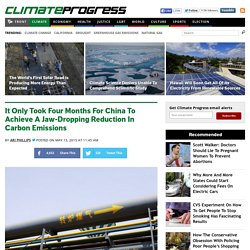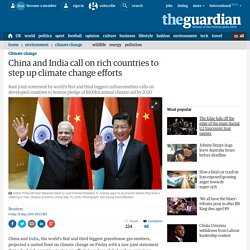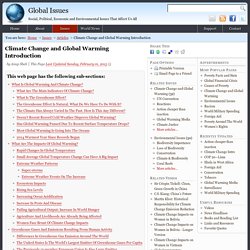

One magical politician won't stop climate change. It's up to all of us. Lots of people eagerly study all the polls and reports on how many people believe that climate change is real and urgent.

They seem to think there is some critical mass that, through the weight of belief alone, will get us where we want to go. As if when the numbers aren’t high enough, we can’t achieve anything. As if when the numbers are high enough, beautiful transformation will magically happen all by itself or people will vote for wonderful politicians who do the right thing. But it’s not the belief of the majority or the work of elected officials that will change the world. It will be action, most likely the actions of a minority, as it usually has been. Take San Francisco, population 850,00, which is near the very top for percent of people who believe in climate change, according to a pollster I spoke to recently.
Sometimes small groups matter. Then, he implored the great wind that lifted him up and carried him along to keep going. Maybe change is on the way... "It Only Took Four Months For China To Achieve A Jaw-Dropping Reduction In Carbon Emissions" - Article on 17th May 201. By Ari Phillips Posted on Share this: "It Only Took Four Months For China To Achieve A Jaw-Dropping Reduction In Carbon Emissions" Share: CREDIT: shutterstock China is the world’s largest greenhouse gas emitter, so small decreases in its emissions seem like monumental feats when compared to other countries.

The analysis, published by Greenpeace and Energydesk China, reviewed data from a number of sources, including China’s industrial output, and found that China had reduced its coal output by 6.1 percent in the first four months of 2015. Lauri Myllyvirta, an analyst who worked on the Greenpeace report, told RTCC that the report shows that China’s industrial output and thermal power generation are falling while renewable energy sources like hydro, wind, and solar are growing fast. In 2014, China cut domestic consumption of coal by 2.9 percent, the first drop in more than a decade, with coal production also falling 2.5 percent.
China and India call on rich countries to step up climate change efforts. China and India, the world’s first and third biggest greenhouse gas emitters, projected a united front on climate change on Friday with a rare joint statement that asked rich countries to step up efforts to reduce global carbon emissions.

The statement, issued by the two largest developing nations during Indian prime minister Narendra Modi’s visit to China, asked wealthy countries to provide finance, technology and other necessary support to emerging countries to help reduce their own emissions. “The two sides urged the developed countries to raise their pre-2020 emission reduction targets and honour their commitment to provide $100bn (£64bn) per year by 2020 to developing countries,” the statement said. While both countries stopped short of making any commitments, they said they would submit their respective plans to curb greenhouse gas emissions well before crucial global climate talks are held in Paris later this year. 2015 Already Setting Heat Records.
The first three months of 2015 set new global heat records, government officials announced today (April 17).

January, February and March set new high-temperature records, respectively; each month was warmer than any on the books since record keeping started 136 years ago. March also ended the hottest 12-month period on record, the National Oceanic and Atmospheric Administration (NOAA) reported. Seven of the past 11 months have tied or set new record-high monthly temperatures. In March, Earth's average temperature was 56.4 degrees Fahrenheit (13.6 degrees Celsius), breaking the previous record set in 2010 by 0.09 F (0.05 C). The Japan Meteorological Agency also put March in first place, as the hottest month ever in its records, while NASA put it in third place, behind 2010 and 2002.
Giant blobs of warm water in the tropical and northeast Pacific Ocean helped boost 2015 to the top of the rankings, according to the NOAA climate report. Rich Nations Have “Outsourced” Their Carbon Emissions. What is Global Warming and Climate Change?

Global warming and climate change refer to an increase in average global temperatures. Natural events and human activities are believed to be contributing to an increase in average global temperatures. This is caused primarily by increases in “greenhouse” gases such as Carbon Dioxide (CO2). A warming planet thus leads to a change in climate which can affect weather in various ways, as discussed further below. What are the main indicators of Climate Change? As explained by the US agency, the National Oceanic and Atmospheric Administration (NOAA), there are 7 indicators that would be expected to increase in a warming world (and they are), and 3 indicators would be expected to decrease (and they are): Ten indicators for a warming world, Past Decade Warmest on Record According to Scientists in 48 Countries, NOAA, July 28, 2010 What is the Greenhouse Effect?
The term greenhouse is used in conjunction with the phenomenon known as the greenhouse effect. D.